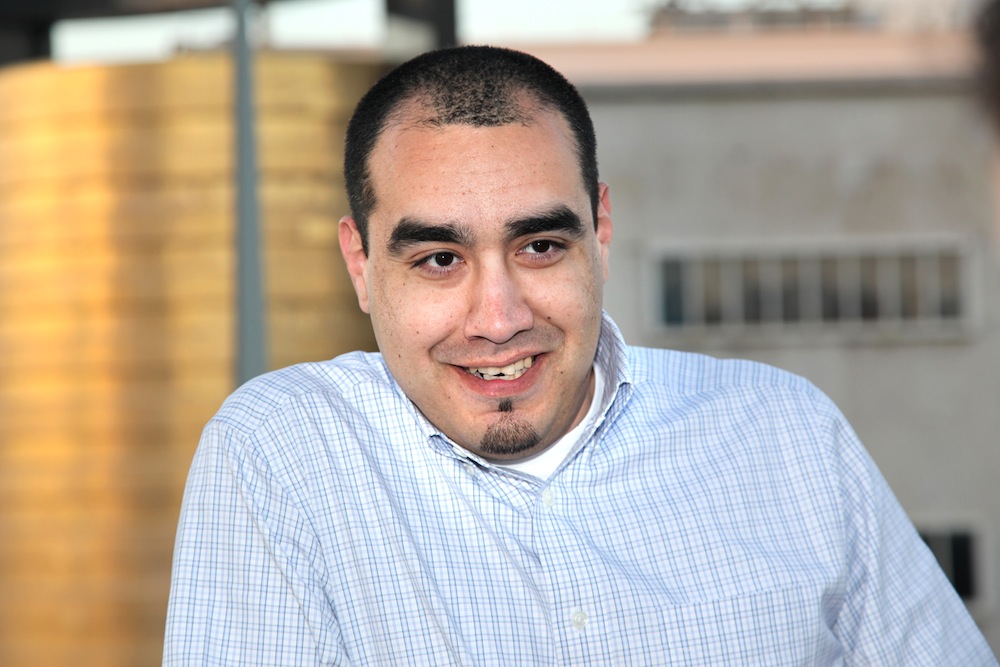
Richard Mora is a sociologist at Occidental College who studies youth cultures, education, immigration, and social inequality. Before participating in a panel on post-immigrant Los Angeles, he talked in the Zócalo green room about queso fresco and friendship, and the professors who changed his life and the questions he wishes his students would ask.
What cheese best embodies you?
I would think queso fresco, which is Mexican, just because not only the identity part, but this is where my youth culture studies comes in: I like to keep things fresh.
What’s your good luck charm?
My friendships I think. I feel like the ties I have to my friends are what keeps me feeling fortunate and lucky.
What’s your specialty in the kitchen?
Breakfast. I can make simple breakfast, but I think I do a good job at it.
What’s your favorite cliché?
“No pain, no gain.” And the reason for it is because I think as a sociologist, I know that there’s inequities and I know that there’s a lot of people who go through a lot of pain and get no gain, and I know there’ s a lot of people who get a tremendous amount of gain with no pain. It’s not that simple.
How are you different from who you were 10 years ago?
Aside from less hair and more wrinkles, and having aches where I didn’t have aches before, I’m back in L.A., and I’m happy. I’m no longer a graduate student, so my career is going, and I feel that I’ve taken a new approach to being a student of life. I feel like I have a sense of what life means for me in a way that I didn’t 10 years ago.
What weapon would you choose in a zombie apocalypse?
I think that’s a fairly simple choice: a lightsaber.
What question do you wish your students asked more often?
That’s a really good question. I can think of the opposite—of which questions I wish they wouldn’t ask. What other books can I read besides what’s on the syllabus?
What teacher or professor changed your life?
Can I give you a whole list? Ms. Donan, elementary school … and in some ways I’d have to jump all the way to college: Professor Mary Waters and Professor Peter Marsden. Both of them, when I was an undergraduate, said to me, “What do you want to be?” I said, “A high school teacher,” and they said, “Why not a professor?” Also, Professor Gwendolyn Dordick—I’m an ethnographer because of her. Professor William Julius Wilson, my adviser. Trying to give shout-outs.
Who was the last person to leave you a voicemail?
This is where I would love for it to be an amazing name. The last person to leave me a voicemail was an auto shop telling me my brother’s car was ready. That his Acura was ready to be picked up.
As a kid, what did you want to be when you grew up?
I went through different stages. First, I wanted to be 18; I wasn’t sure if I was going to live to be 18, because of the gang violence that I saw around me. And here I am, six days after I turned 36—I’m 18 times two. I didn’t have any idea what I wanted to be. I wanted to be an Air Force pilot for a while, but once I started getting politicized at the age of 14, I decided I didn’t want to participate in the military that way. I heard a comedian once say that grownups ask kids these questions because they’re looking for ideas for what they can do with their lives. I just accepted that I’m a grownup about 10, 12 years ago. I just wanted to be alive and enjoy life, and I think I am both alive and enjoying life.



